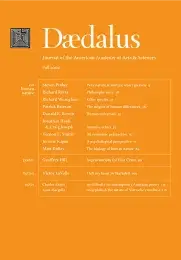Human nature: an economic perspective
Fruitful social science must be very largely a study of what is not.
–F. A. Hayek, Rules and Order
An economist writing on the topic of human nature is surely expected to talk about decision-making by narrowly self-interested rational agents. These agents are assumed to choose among all possible options the one that maximizes their expected gain, defined variously as utility, profit, income, wealth, and so on, depending upon the standard model invoked. Moreover, ceteris paribus, the particular context of the decision is irrelevant in the standard model.
But I will not be fulfilling such a simplistic expectation; neither am I going to claim that people are not motivated by self-interest. In fact, on balance, I believe we have more to learn about what constitutes self-interest by observing humans in a variety of contexts than we have to teach using models based on traditional assumptions about self-interest. This is because my half-century involvement in the development of experimental economics long ago revolutionized the way I think about economics. Market and other group decision-making experiments have deepened my understanding and respect for the power of human beings to create institutions that enable them to discover ingenious new ways to pursue and satisfy their interests. This creative process is neither deliberate nor consciously visible to the participants.
From an economist’s point of view, the most compelling feature of human nature is sociality. It has been our species’ capacity for social exchange that has enabled task specialization and the production above bare subsistence that has supported investment in the creation and utilization of knowledge. As can be seen in the ethnographic record, in daily life, and in laboratory experiments, whether it is goods or favors that are exchanged, exchange promises gains that humans seek relentlessly in all social interactions. Focusing on narrow, easily modeled, a priori conceptions of self-interest distracts us from this underlying truth. . . .
Access the full issue here.
